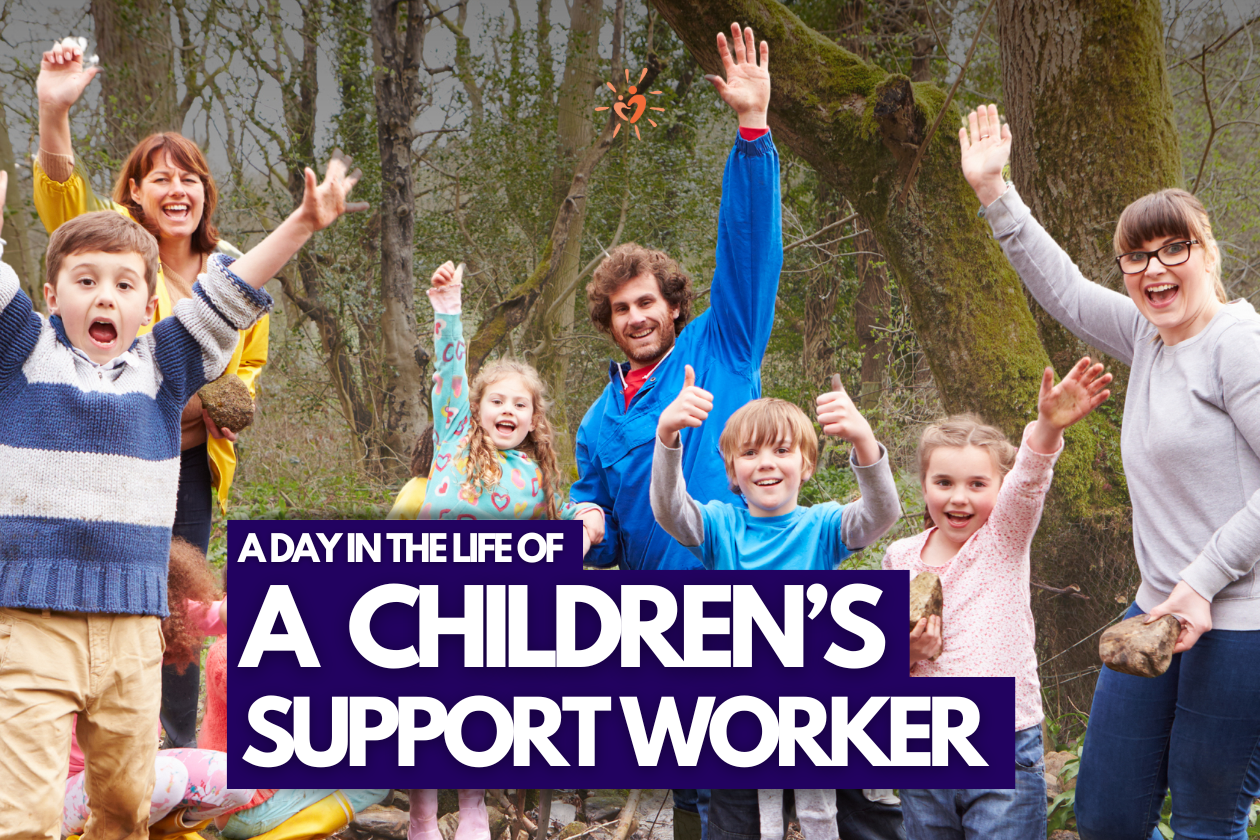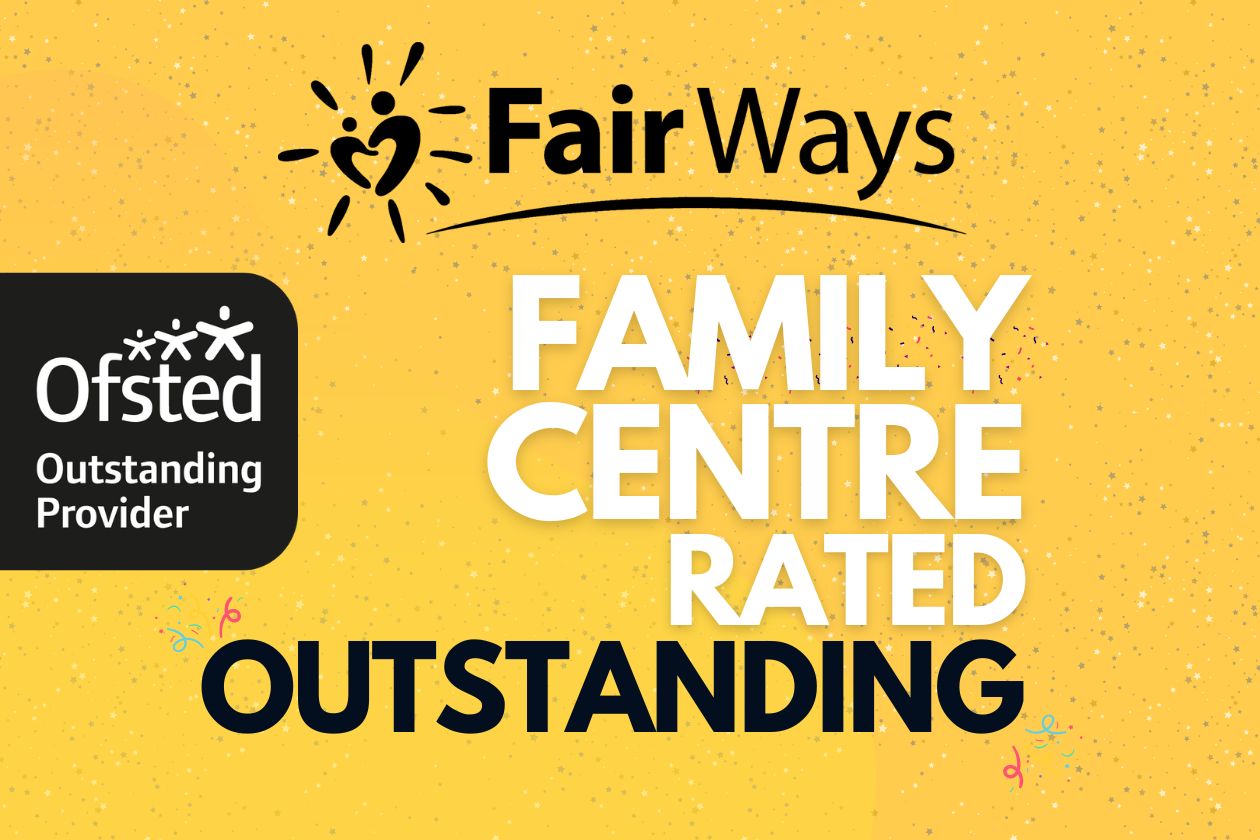
We often get asked ‘What it is like being a Residential Children’s Support Worker in Fair Ways?’.
In this latest mini-series, we will be answering that question, along with explaining the key differences between each of our main services on a day-to-day basis. We will be telling this story through ‘A Day In The Life Of’, of which we will be starting with our Residential Children’s Homes.
This day is from one home in our service; Garden House.
07:00 – 09:30
This is the time when we get the children ready for school – this includes prompting for morning showers, helping the children with any worries they have, any personal care assistance for younger children, helping get uniforms ready, making sure the young people have breakfast, and doing any school runs.
09:30 – 14:30
In addition to our Waking Night Support Workers cleaning overnight, we use this time to do any other cleaning required around the house. Once that’s done, it’s time to plan the day; go shopping for any extra food or things needed for the house, prepare dinner, pick up medication, take the children to any medical appointments and also complete the necessary paperwork.
Your Team Leader will show you how to do everything and help you plan the day. Sometimes we may have a team meeting, training, or other meetings throughout the day, but this is all in the diary and well communicated. Twice a month there is a 3-hour, face-to-face team meeting.
14:30 – 17:00
During this time, we focus on picking the children up from school.
On Wednesday and Sunday, we have a community meeting that allows the children to talk about their feelings. You may be involved in keywork sessions which are conversations with a child to help them with something or give them a chance to say how they are feeling on a 1:1 basis.
Depending on the day of the week, you may take children to activities or hobbies they are doing, like swimming or football. You could take the children to play football down the park, for a walk or maybe watch a film.
17:00 – 19:00
Dinner time for the children is 17:00. Being consistent with this time helps the children work to a routine and we find this helps them regulate their behaviour. After dinner, the children tend to want to play on tech in their rooms, but they may also want to talk about their feelings or watch telly with an adult. Any young person who showers in the evening will have their showers during this time.
19:00 – 21:00
We begin to settle the children ready for bed, by taking 30 minutes one-on-one (time dependent on age) to do calming activities such as reading or cards. This gives the children some time with an adult and helps them to feel cared for and calm.
Staff debrief begins at 21:00, focussing on how they feel the day went and discussing anything that could be changed.
It is around this time that our Waking Night Support Worker will arrive for the evening.
21:00 – 22:00
Garden House has Waking Night Support Workers each night, as well as a team member who will be ‘sleeping in’ downstairs.
Staff are expected to complete one sleep-in per shift pattern, where the waking night can radio down if there is an emergency. If staff are up during the night, this will be catered for the next day with a longer break.
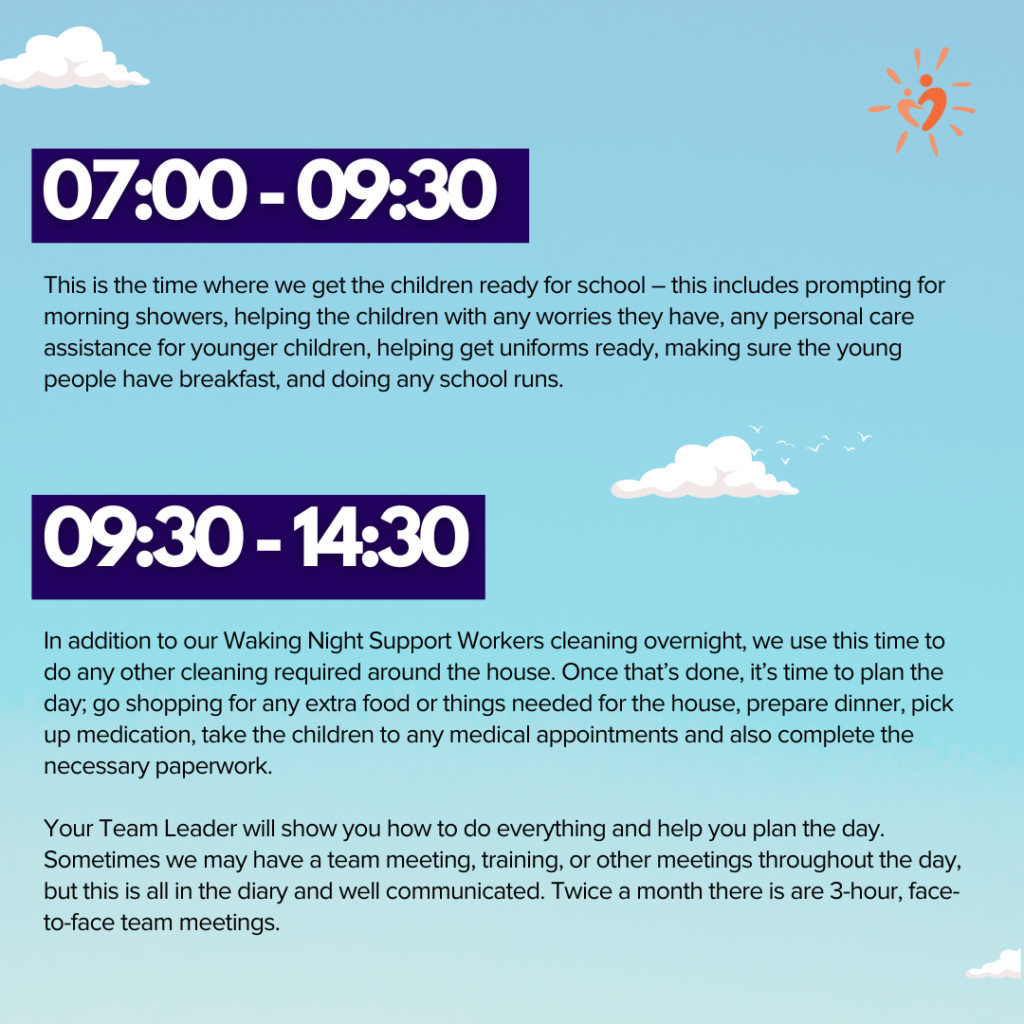
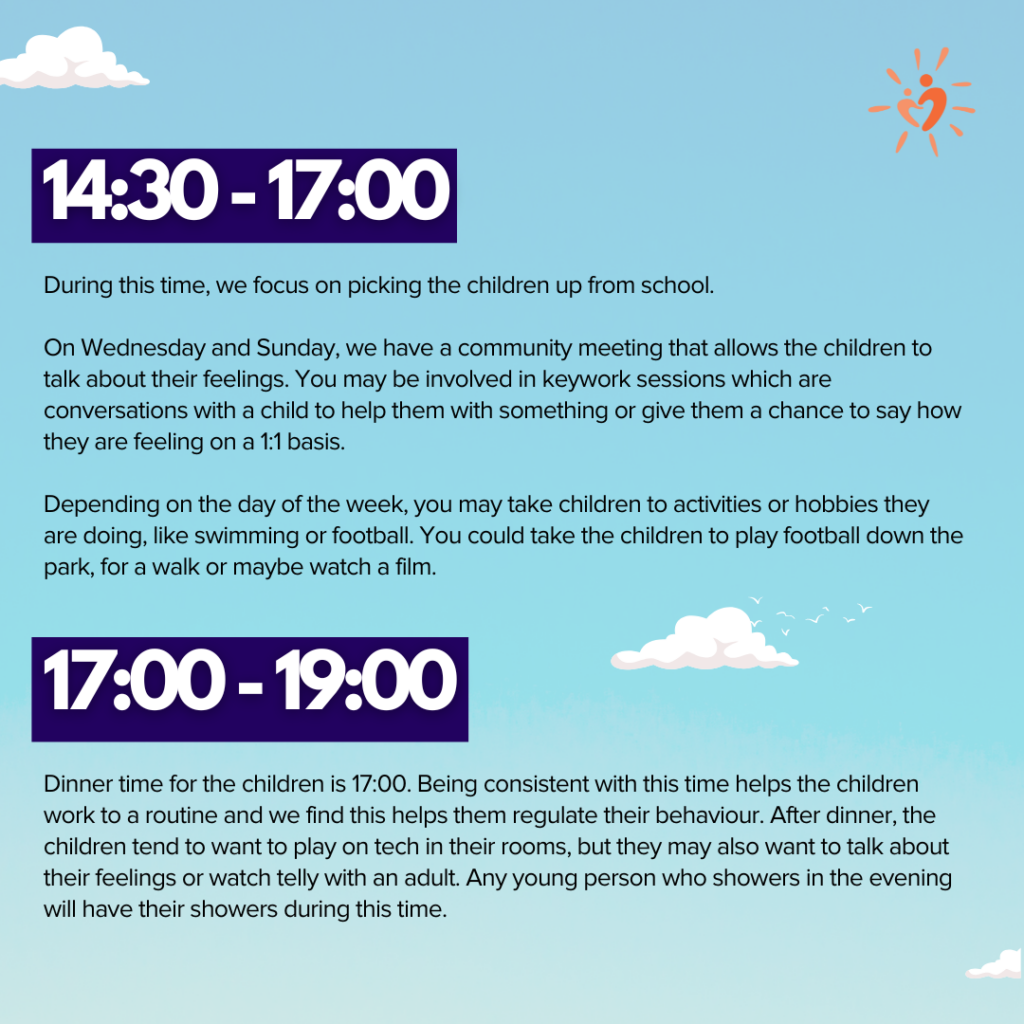
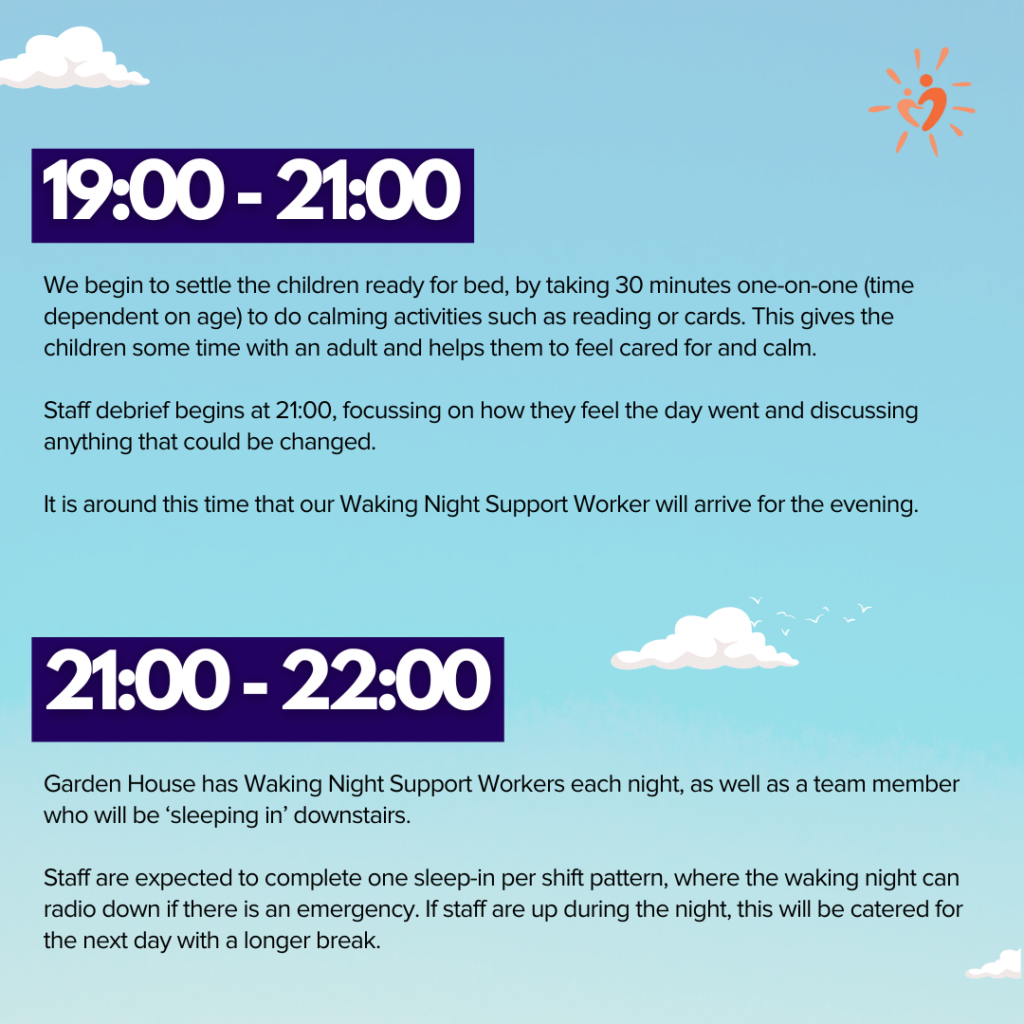
Fair Ways Newsletter
Keep up-to-date with our monthly news, events, and insights.

Fair Ways Newsletter
Keep up-to-date with our monthly news, events, and insights.
Enquire to become a foster carer
Join and receive world-class training and support, from an organisation that cares.
Enquire today